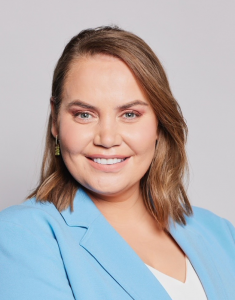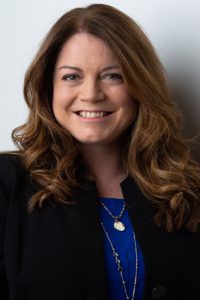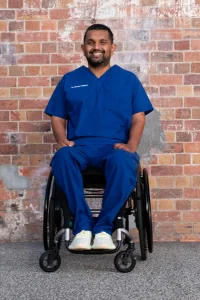R U OK? Day 2024: From One Man’s Pain Comes a Whole World of Hope

Contents:
With anxiety and depression on the rise globally, it’s more important than ever to talk about mental health. The recent global pandemic, distressing conflicts abroad, cost of living pressures and significant challenges like climate change are all adding to the stress people around the world are feeling. Yet somehow we still struggle on a wider societal level to have honest, genuine and open conversations about life’s ups and downs. This is especially true in the workplace, where often the simple question of ‘How are you?’ is almost expected to be answered with a thoughtless ‘Good thanks’. We all have an important role to play in changing that and destigmatising not being okay.
R U OK? Day 2024 is fast approaching – this year falling on Thursday 12th September – and with it, comes the chance to take another step forward in positively shifting how we talk (or more accurately, don’t talk enough!) about mental health. Here at ICMI, we’re proud to have a roster of mental health, resilience, wellness and mindfulness speakers who can share valuable insights and heartfelt stories that bring greater focus on the importance of speaking up and caring for one another’s welfare.
The History of R U OK? Day
In 2009, fourteen years after losing his own father to suicide, Gavin Larkin decided something needed to be done to try and make a difference to this landscape of tight-lipped toleration. He didn’t want anyone else to go through the suffering his family had been through. So Gavin and his team created the annual R U OK? Day in the hope to inspire people to open up more about mental health.
The aim is to empower us all to lend support when someone around us is struggling, and perhaps even be honest the next time somebody tries to ask us how our day is going! At the centre of all of this, is the not-for-profit’s power message: ‘a conversation could change your life’. If we can work as a community to create space for as many of these conversations as possible, R U OK? has a vision that we can all play a role in shaping a world where we are better connected and supported to take control of our mental health.
How to (genuinely) ask if someone’s ok
Each of us has an important role to play in changing the way we talk about mental health. Building resilience and creating space for important conversations is a community effort. While simply asking ‘Are you ok?’ is a great start, there are a few more key steps in the process that will help us to make a real difference in someone else’s life. These are:
- Ensure you are ready to ask the question and have picked a good moment
- Ask questions to help them open up, for example ‘What has been going on?’
- Actively listen to and engage with what the person is going through
- Encourage positive action
- Continue to check in with them so that person can feel supported and connected in a meaningful way
Making sure everybody in our community is protected from suicide depends on us all continuing to support each other as a network. If you get a feeling that someone you care about or know isn’t acting like they normally would? Whether they seem sad, agitated, withdrawn or just not themselves, trust your gut instinct that something is not right. We can all make a positive difference simply by making time to properly listen to those around us!
Remember that you need to be ready to ask and take action. That means being in a good headspace, being willing to genuinely listen and give as much time as they need. If you’re not up to it or don’t think you’re the right person to have the conversation, that’s OK. Think of someone else in their support network who could step in and help. Understand that you can’t “fix” someone’s problems. You might also have to accept that they might not be ready to talk or not want to talk to you.
Asking Questions Makes a Huge Difference
Mental health advocates and everyday folk who experience mental health issues all agree – being asked “are you OK?” might not seem like a big deal but it goes a long way. Initiatives like R U OK? Day are incredible because of their simplicity. Sometimes, doing your part doesn’t need to be any more complex than asking this short but important question.
We often underestimate the power of striking up a chat, sending a text or making a phone call. It doesn’t take a lot of time and effort but it really can, and does, have an enormous impact. Some people who come across as strong and tough can be sad or struggling deeply. We never know what’s truly going on in someone else’s world. Simply asking them can do wonders for helping them open up. Avoiding the question, and not asking, can make it harder for those of us who are experiencing difficulties.
Let’s All Do Our Part to Improve Mental Health
We need to have more open conversations about mental health and wellbeing. So don’t be scared of asking that question. Even if you don’t see anything wrong with someone, ask. Keep asking. Sometimes paying attention and being kind to others can really change their life.
“Are you OK?” is incredibly meaningful and it’s a question we should be asking each other not only during R U OK? Day, but throughout the year.
Start More Conversations with an R U OK? Day Speaker
R U OK? Day is a powerful opportunity to spread the mission of the cause in our workplaces, schools and communities. By inviting a speaker with personal or professional experiences with mental health is a great way to boost mental health awareness.
With expert insights and guidance, we can all spark more conversations and empower everyone to build the tools to start their own potentially life saving conversations.
Browse our roster of mental health and wellness speakers here at ICMI

A former world number 4 tennis player, popular commentator and best-selling author of her autobiography ‘Unbreakable’, and her recent release ‘Fearless’, Jelena Dokic’s story of survival on and off the court is truly remarkable.

Tom is a beacon of courage, on and off the field. A star AFL premiership player and former number 1 AFL draft pick at the age of 18, Tom saw a higher calling that transcended football, and invested his time and effort into his own mental health and wellbeing, in turn helping others struggling with their own mental health issues.

Cognitive and behavioural science specialist Dr Kerry Maberly is an endless resource of insights, with her expertise covering everything from strategies for resilience and self-care to better understanding our habits and the unique quirks of our brains.

Award-winning doctor, disability advocate, and co-founder of Doctors with Disability Australia, Dr Dinesh Palipana OAM is a truly inspirational figure with an incredible story that highlights the importance of resilience, wellness, perseverance and persistence through hardship.
For this year’s R U OK? Day, we hope we can all work together to create space for important conversations around mental health. Together we can build a new culture of openness and resilience. You can browse our full range of R U OK? Day speakers here or browse based on location if you’d like to find a speaker near you:
- mental health speakers Perth
- mental health speakers Canberra
- mental health speakers Sydney
- mental health speakers Brisbane
- mental health speakers Melbourne
If you’d like a more personal touch you should get in contact with us for a tailored speaker recommendation.
Browse RU OK? Day speakers Blog: What we do when we R not OK